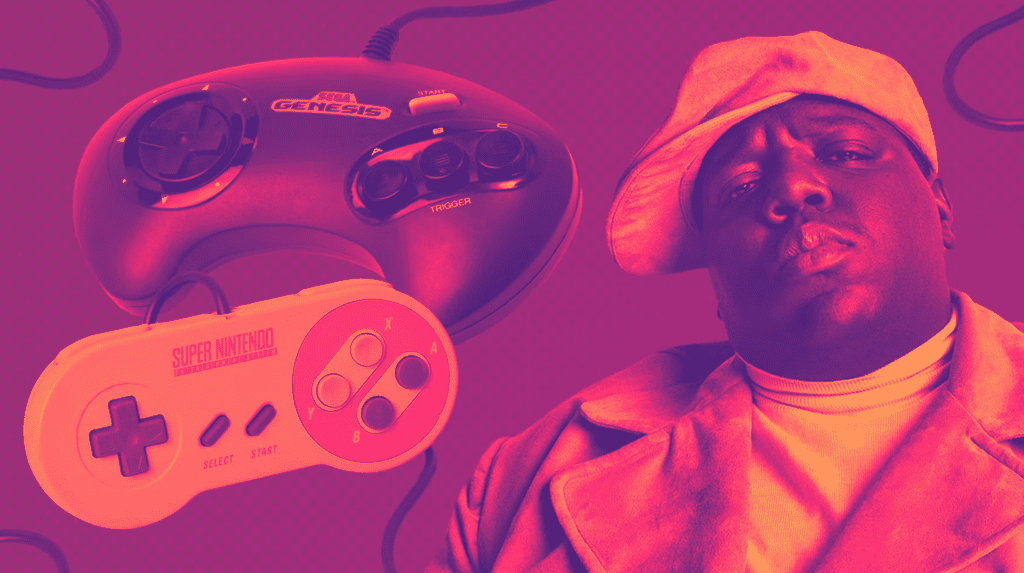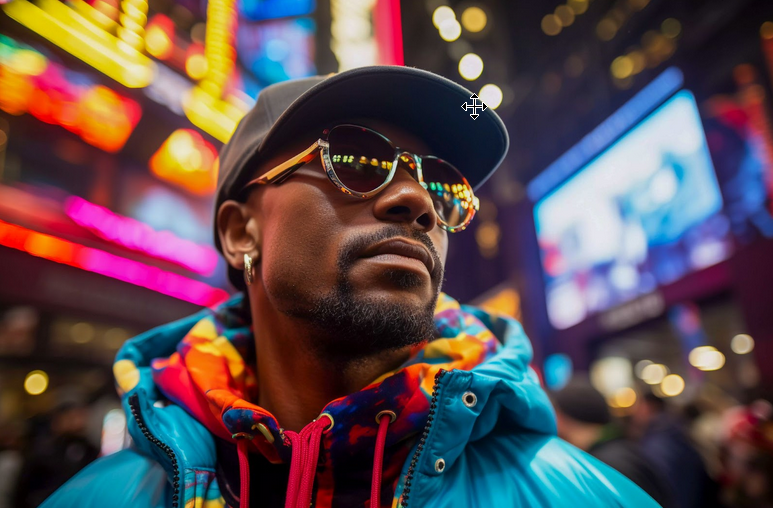Hip-hop and video games have intertwined culturally for years. From the beat-’em-up game Def Jam: Fight for NY, featuring early 2000s rappers, to Dr. Dre dropping new music via GTA Online recently, the mutual admiration is evident. Hip-hop often references video games—Lauryn Hill mentioned the ColecoVision, Eminem expressed his love for The Legend of Zelda, and JAY-Z gave a nod to the Sony PSP. Here are some notable and surprising intersections between rap and gaming culture.
In his 1994 hit “Juicy,” The Notorious B.I.G. reflects on his rise to success, famously rapping, “Super Nintendo, Sega Genesis. When I was dead broke, man, I couldn’t picture this.” This line is one of hip-hop’s most iconic video game references. Ice Cube’s “Friday” also mentions the Super Nintendo, rapping, “Smoking indo, playing that Super Nintendo.” Skepta references it in “Mike Lowery,” rapping, “Been producing since Mario Paint on the Super Nintendo,” highlighting the game’s built-in music sequencer. These lines showcase the deep connection between hip-hop and gaming culture.
Sega’s 16-bit Genesis console also gets its fair share of shout-outs. In “Nosetalgia” by Pusha T, Kendrick Lamar raps about selling Sega Genesis consoles. Busta Rhymes references the Genesis in his 1997 track “Get Off My Block,” likening playing a game on the console to taking someone down. ScHoolboy Q reminisces in “Hoover Street” about how his grandma would spoil him with a Sega Genesis among other things. These mentions highlight the significant cultural impact of the Genesis in the rap world.
The Nintendo 64 (N64) has also found its place in rap lyrics. On the 2009 mixtape How Fly, Curren$y raps about playing GoldenEye on the N64 in “The Check Point.” Eminem, in his track “Murder Murder” from the Slim Shady LP, mentions the console’s rapid sellout and price hike. Hopsin, in “Ill Mind 6: Old Friend,” reminisces about playing the N64. These references highlight the nostalgic and cultural significance of the N64 in the hip-hop world.
But nothing in gaming history is referenced more in hip-hop than Atari. JAY-Z raps about needing money for Atari in “Never Change,” and MF Doom mentions battling for Atari cartridges in “Rock Co. Kane Flow.” OutKast, Lil Yachty, Young Thug, Trippie Redd, and many others have also referenced Atari.
Even the obscure ColecoVision gets shout-outs. Del the Funky Homosapien reminisces about playing it in “Proto Culture,” while Lauryn Hill mentions it in “How Many Mics.” JAY-Z, OutKast, Killah Priest, and Freeway have rapped about it too.
Sony has made a significant impact in hip-hop as well. Little Simz raps about playing PS2 games like Crash Bandicoot and Mortal Kombat in “101 FM” from her 2019 album GREY Area. Kendrick Lamar, in his track “ADHD,” reflects on how his generation uses drugs and video games, mentioning PlayStation. Playboi Carti, in his 2020 track “Slay3r,” includes a more carefree reference to playing PlayStation. These examples highlight the influence of Sony’s PlayStation in hip-hop culture.
Microsoft’s Xbox is also referenced in hip-hop. Tyler, the Creator mentions it in several songs, like “Colossus” and “Her.” In “Colossus,” he imagines hiding away to play Xbox and listen to music, while in “Her,” he talks about spending days playing Xbox. 50 Cent mentions Xbox in his 2003 track “High All the Time,” listing it among various gadgets. Curren$y, an avid gamer, raps about using Xbox’s web browser and playing an updated NBA season in his 2010 track “Breakfast.” These mentions highlight Xbox’s influence in the hip-hop world.

Hulda Hicks was born in Brooklyn, NY in the late ’70s, at the time when Hip-Hop music was just emerging as an art form. Her entire life was influenced by the culture, having grown up in the epicenter of the creative movement.
As a trained musician and vocalist, Hulda got exposed to the industry in her twenties and has worked on projects with iconic figures such as the Chiffons, the Last Poets, and Montell Jordan, to name a few. Her passion for music extended past the stage on to the page when she began to write ad copy and articles as a freelancer for several underground publications.
A written review from “Jubilee Huldafire” is as authentic as it gets, hailing from one creative mind that has a unique voice, on paper and in person.
Editor Picks
-
TIIIME Brings Back the Golden Era of R&B with Their Debut Single “She’s Mine”
-
2Polar: The Calm and the Chaos of Hip-Hop’s Next Dynasty
-
Seattle Music Producer Eddie Anthony Seemingly Sends Shots at Gisele Bündchen on Bold New Single “Kiss and Tell (Version Doce)” Featuring June B
-
Crown of Thorns and Tape Reels: Oran Juice Jones II’s “Juicetopher” album is a Resurrection in Rap
-
Pt+ Drops Highly Anticipated Album, I Never Left – A Nod to Classic 90’s West Coast Rap







